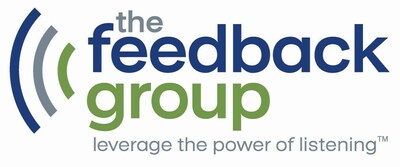The Feedback Group's recent study found that a majority of grocery shoppers have increased their food inflation coping strategies in 2023 compared to 2022. The top strategies include buying more items on sale (52%), eating more at home instead of restaurants (46%), and purchasing more store brands over national brands (44%). In terms of pricing, consumers perceive store brands to be more cost-effective compared to national ones. However, there's a misconception among shoppers about grocery store profits, with many believing stores have a net profit margin of 35%, significantly higher than the historical average of 1%. Less than half of the respondents (48%) feel their primary supermarket is on their side when it comes to inflation, emphasizing the need for stores to reevaluate pricing strategies and value propositions to foster trust.
LAKE SUCCESS, N.Y., Aug. 16, 2023 /PRNewswire-PRWeb/ -- The Feedback Group, a leader in providing actionable stakeholder feedback, today released new findings from national research conducted with 1,200 consumers about their experience shopping in store for food and groceries.
Nearly All Food Inflation Coping Strategies Increased Over Last Year
Grocery shoppers were asked about a number of inflation coping strategies used in the past few months. In 2023, all but two of these strategies show higher use versus last year. The most common strategy is buying more items on sale (52%, up from 43% in 2022), followed by eating more often at home instead of restaurants (46%, same as 2022), buying more store brands instead of national brands (44%, up from 38%), purchasing more food and groceries at stores with lower prices (38%, down from 46%), buying fewer last-minute or impulse items (36%, up from 25%), using a store's weekly sales flyer – paper or digital – to plan a shopping list (31%, up from 23%), comparing prices at multiple stores before buying an item (29%, up from 18%), substituting similar, less expensive foods (27%, up from 24%), purchasing more bulk-pack items to lower price per serving/unit (26%, up from 25%), purchasing food for home that is less healthful but also less expensive (22%, up from 15%), and buying fewer organic items and products to cut costs (16%, up from 12%). Down from 9% in 2022, 8% indicated they did none of these actions in the last few months.
Brian Numainville, a principal with The Feedback Group, commented, "Food shoppers continue to adapt to cope with food inflation through a variety of strategies, doing more of nearly all of them versus a year ago. While the top strategy, not surprisingly, is buying more items on sale, with more than five in ten shoppers now doing so, more than four out of ten shoppers are eating more often at home instead of restaurants and buying more store brands instead of national brands, among many other behaviors. As consumers continue to display their resilience in the face of inflation, the findings clearly demonstrate that strategic buying behaviors have become pivotal components of their everyday shopping habits."
Store Brands Grow Price Perception Compared to National Brands
Shoppers were asked if, on their most recent visit, the prices of private label/store brands were less expensive than name brand alternatives. On a five-point agreement scale, the mean score was up to 4.16 this year compared to 4.06 last year, showing shoppers give store brands more credit in price compared to national brands this year versus last year. Shoppers were also asked if they believe the quality of private label/store brands compared well to name brand alternatives. Scores for both years were essentially similar, with 4.18 agreeing with the statement this year versus 4.20 last year.
Shoppers Continue to Believe Food Stores Make Hefty Profits
Grocery shoppers were asked, from the money spent at their primary store, how much they think is left for profit, after the store pays all expenses and taxes. On average, shoppers indicated they believe their primary store has a net profit of 35%, a slight increase from 33% found in last year's survey. According to FMI – The Food Industry Association, the average net profit for a supermarket has been close to 1% historically (and as high as 3% in 2020).
On this year's survey, The Feedback Group asked respondents if their primary supermarket was "on my side when it comes to inflation." Fewer than half (48%) agreed with that statement.
"The combination of shoppers' grossly inflated perception of supermarket profits, and their dissatisfaction with responsiveness to their inflation concerns, signals a pressing need for stores to employ thoughtful price strategies and reframe their value proposition in order to maintain trusting relationships with shoppers," concluded Doug Madenberg, Chief Listening Officer of The Feedback Group.
The research findings are available to supermarket retailers, distributors and other food industry companies. Please visit the Feedback Group website for more information.
About The Feedback Group
The Feedback Group offers a broad spectrum of research, consumer insight, and consulting services. As a 360-degree listening partner, The Feedback Group provides services include employee experience assessments, customer satisfaction programs, and consumer perception studies, as well as national, regional and local shopper studies. For more information, visit feedbackgroup.com.
Media Contact
Brian Numainville, The Feedback Group, 1 5168294200 115, [email protected], https://feedbackgroup.com/
SOURCE The Feedback Group



Share this article